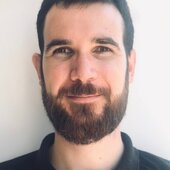
Antoine Fabre
Maitre de Conférences en Sciences de Gestion, Université Paris Dauphine – PSL
Less ![]()

Antoine Godin
Économiste-modélisateur, Agence française de développement (AFD)
Économiste associé au Centre d’économie de l’université de Paris Nord (CEPN), Antoine Godin a obtenu un diplôme d’ingénieur en mathématiques appliquée de l’Université catholique de Louvain (Belgique) et un doctorat en sciences économiques de l’université de Pavie (Italie).
Spécialiste de la modélisation macroéconomique et des approches stock-flux cohérentes (SFC), il a étudié les dynamiques d’innovations, les instabilités financières et les politiques d’emploi garanti. Il travaille actuellement sur le développement du projet de modélisation macroéconomique GEMMES (General Monetary and Multisectoral Macrodynamics for the Ecological Shift) au sein de l’Agence française de développement.
Less ![]()

Antoine Hermens
Associate Professor Antoine Hermens is the Head of the Management Discipline Group at the UTS Business School. His career at UTS demonstrates his commitment to innovation, focus on high quality education and outcomes. Antoine was awarded a UTS Teaching and Leaning citation in 2010. Antoine proactively engages in building strong institutional relations with business and stakeholders’ communities in line with the mission of the University.
Antoine has significant senior management experience both in academe and industry and is a key member of various industry and academic networks. Antoine has extensive experience as advisor, researcher and consultant; his focus is on strategic analyses, dynamic capabilities and business modelling. Antoine regularly consults and advises to international and national organisations on turnaround strategies, restructuring, strategy planning, alliance formation, mergers and acquisitions and demergers.
As an academic researcher his particular interests are in shaping strategies, strategic alliances, and additive manufacturing / digital technologies. As an international visiting professor Antoine presents courses and regularly interacts with academics and administrators in New York, Ottawa, Paris, Toulouse, Reims, and Hong Kong from leading AACSB accredited business schools and consequently he also has considerable understanding of international policy and best practice in business education.
Less ![]()
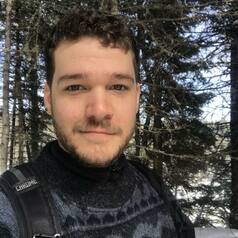
Antoine Lachance
PhD student, Department of Geography, Planning and Environment, Concordia University
I work in paleoclimatology in Eastern Canada, specifically on reconstructing paleo-storm in the Maritimes region.
Less ![]()
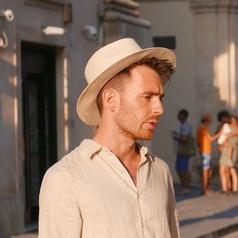
Antoine Marie
Chercheur post-doctorant, École normale supérieure (ENS) – PSL
Je suis spécialiste de psychologie politique, un domaine à la croisée entre sciences politiques et sciences cognitives. Mes recherches et mes conférences portent sur les fonctions stratégiques de la mésinformation politique (pensée complotiste, fake news), les mécanismes de la polarisation politique et les solutions contre celle-ci, les croyances extrêmes, la répression de la liberté d’expression et la politisation des débats scientifiques.
Mes publications et mon CV détaillé sont disponibles sur mon site internet: https://antoinemariesci.wixsite.com/antoinemarie
Less ![]()
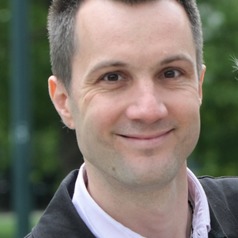
Antoine Pécoud
Professeur de sociologie, Université Sorbonne Paris Nord
Antoine Pécoud est Professeur de sociologie à l'Université de Sorbonne Paris Nord et directeur du département POLICY de l'Institut Convergences Migrations.
Less ![]()
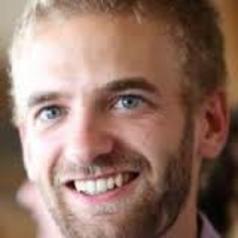
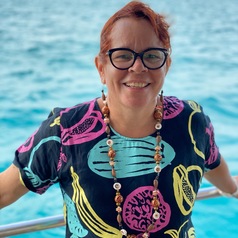
Antoinette Cole
PhD Candidate, Senior Research Assistant, School of Education, The University of Queensland
Less ![]()
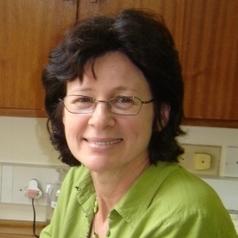
Antoinette Paula Malan
Researcher in Nematology, Parasitology, Systematics, Stellenbosch University
My research is focused on post graduate supervision of students on projects mainly on entomopathogenic nematodes. My field of speciality is the description of new entomopathogenic nematode species. Other projects include plant-parasitic nematodes and free living nematodes.
Less ![]()
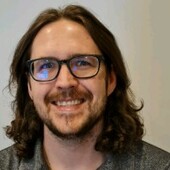
Anton Lukas
Groundwater modeller and postdoctoral researcher, University of the Free State
Less ![]()
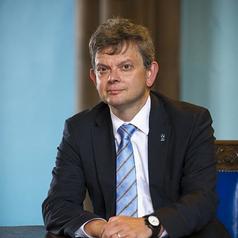
Anton Muscatelli
Anton is Principal and Vice Chancellor, University of Glasgow. He was educated at The High School of Glasgow and the University of Glasgow, where he graduated M.A. (Hons) in Political Economy (1984) and took a Ph.D. in Economics (1989). He was a Lecturer and Senior Lecturer at the University of Glasgow from 1984 to 1992, and Daniel Jack Professor of Political Economy from 1992 until 2007. He was Dean of the Faculty of Social Sciences, 2000 to 2004, and Vice-Principal (Strategy, Budgeting and Advancement) from 2004 until 2007. After two years as Principal and Vice-Chancellor of Heriot Watt University, he returned to University of Glasgow to take up his present post in 2009.
Professor Muscatelli has been a consultant to the World Bank and the European Commission, and was a member of the Panel of Economic Advisers of the Secretary of State for Scotland from 1998 to 2000. Since 2007, he has been an adviser to the House of Commons Treasury Select Committee on monetary policy, and in 2008 he was appointed to chair an independent expert group for the Calman Commission on Devolution, set up by the Scottish Parliament and led by the Chancellor of the University of Glasgow, Sir Kenneth Calman.
He chaired the Research and Commercialisation Committee of Universities Scotland in 2007-08 and from 2008 to 2010 was Convener of Universities Scotland and Vice-President of Universities UK. He was appointed a Fellow of the Royal Society of Edinburgh in 2001, and of the CESifo Economics Research Institute in Munich in 1999 In 2009 he was appointed Knight Commander (Commendatore) of the Republic of Italy for services to Economics and Higher Education. In 2012 he was awarded an honorary doctorate (Ll.D) from McGill University, Montreal, Canada. In April 2012 he was appointed to the Board of the Scottish Funding Council (SFC) which provides funding and oversight of all of Scotland's Colleges and Universities. From 2014 he is Honorary President of the David Hume Institute, succeeding Lord Steel. He has held visiting appointments in many universities, including in 2014, Guest Professor of Nankai University, Tianjin, China.
Less ![]()

Antonella Acinapura
Postdoctoral Research Fellow at the Middle East Centre, University of Oxford
Antonella Acinapura is a Postdoctoral Research Fellow at the Middle East Centre, the Oxford School of Global and Area Studies (OSGA), University of Oxford. She holds a Ph.D. in Politics and International Relations from Queen’s University Belfast, a MA in Middle Eastern Studies from Ca’ Foscari University of Venice.
Before joining Oxford, she thought undergraduate and postgraduate modules about terrorism and security, contemporary politics of the Middle East, and the Israeli-Palestinian conflict at Queen’s University of Belfast and the University of Salford.
Less ![]()
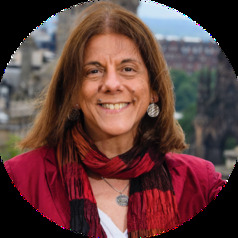
Antonella Sorace
Professor of Developmental Linguistics, The University of Edinburgh
Antonella Sorace is Professor of Developmental Linguistics at the University of Edinburgh. She is internationally known for her interdisciplinary research on bilingualism across the lifespan, and for her commitment to building bridges between research and society. She is the founding director of the non-profit organisation Bilingualism Matters, which currently has more than 30 branches in four different continents.
Less ![]()
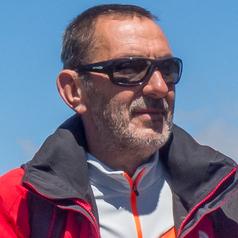
Antoni Serra Sorribes
Director del Centre de Recursos de Biodiversitat Animal (CRBA) de la Facultat de Biologia, Universitat de Barcelona
Less ![]()
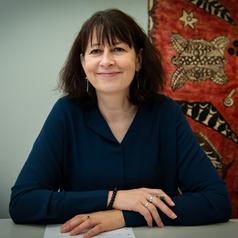
Antonia Lyons
Professor of Addiction Research, University of Auckland
Antonia’s academic background is in health psychology and her research has focused on the social and embodied contexts of behaviours related to health and wellbeing. She has been particularly interested in identities, power and addressing inequities across different social groups. Antonia’s work has explored drinking cultures and alcohol consumption at different life stages (including youth, young adult and midlife drinkers), leading to a focus on digital alcohol marketing.
Less ![]()
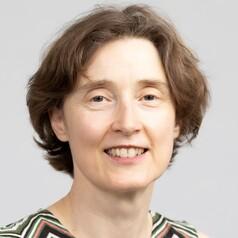
Antonia Shand
Research Fellow, Obstetrician, University of Sydney
I am a research fellow at the University of Sydney, where I am undertaking clinical and population based research about pregnancy and childhood outcomes. I am also a Maternal Fetal Medicine (MFM) Specialist and Obstetrician at the Royal Hospital for Women in Sydney. My areas of expertise and interest include medical complications in pregnancy, infections in pregnancy, prenatal diagnosis and perinatal loss. I am a PhD student at the University of Sydney.
Less ![]()
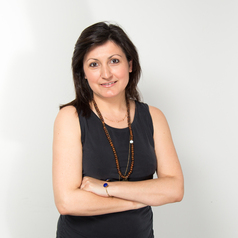
Antonia Ypsilanti
Associate Professor in Cognitive Psychology/ Psychobiology, Sheffield Hallam University
I have extensive teaching experience and have lead on various Departmental and College roles at SHU. Over the last five years, my research has been concerned with understanding emotional processes and how these affect decision-making and mental health in clinical and non-clinical populations. My expertise lies in understanding the interplay between emotion and cognition by utilizing novel methodological tools to inform relevant mental health promotion interventions. My research involves three main strands: Mental Health; Aging; and Risk-Taking Behaviours. I supervise numerous post graduate dissertations and I am the Director of Studies for two funded PhD students and I am a member of the supervision team for several self-funded students. I am the module leader for the elective Level 6 module "Social and Affective Neuroscience" and I teach in the MSc in Clinical/Cognitive Neuroscience.
Less ![]()
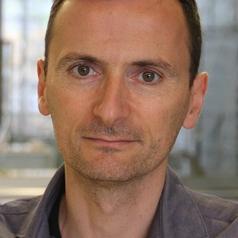
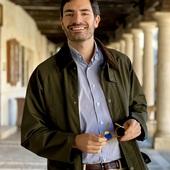
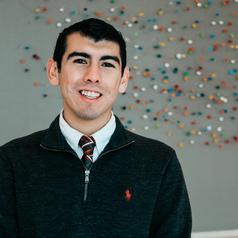
Antonio Duran
Assistant Professor of Higher and Postsecondary Education, Arizona State University
Antonio Duran (he/him/él) is an assistant professor of higher and postsecondary education in the Mary Lou Fulton Teachers College. His research broadly examines how historical and contemporary legacies of oppression influence college student development, experiences, and success. Connected to this central thread, he is also interested in how scholar-practitioners use the above knowledge in their practice. He primarily uses critical frameworks (e.g., intersectionality, queer of color critique, quare theory, jotería studies) to complicate the field’s understanding of racism, heterosexism, trans oppression, and other forms of marginalization on college campuses.
Less ![]()
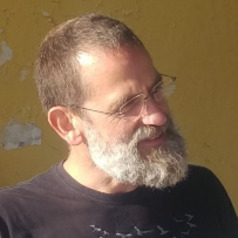
Antonio González-Martín
Profesor Antropología Física, Universidad Complutense de Madrid
Licenciado en Biología y Doctor en Antropología Física por la Universitat de Barcelona. Postdoctoral en la Universidad de Bolonia (Italia). Cargos en diferentes instituciones mexicanas (Instituto Nacional de Antropología e Historia, Universidad del Estado de Hidalgo,....). Investigador "Ramón y Cajal" en la Universidad Complutense de Madrid, actualemente Profesor Titular en el departamento de Biodiversidad, Ecología y Evolución de la Universidad Complutense de Madrid. Especializado en filogeografía humana y en el estudio de las estrategias adaptativas de nuestra especie.
Less ![]()
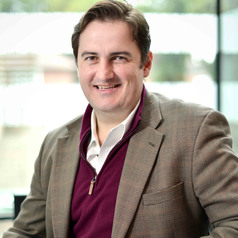
Antonio Malfense Fierro
Dr Antonio Malfense Fierro completed his PhD at Edinburgh University Business School in 2012 and joined Hull University Business School in May 2013. In May 2010 he was selected as one of the 100 global ‘Young Leaders of Tomorrow’ for the St Gallen Symposium in St Gallen, Switzerland. During 2010-2011 he was the first ‘Chazen Visiting Scholar’ at the Lang Entrepreneurship Center at Columbia University Business School, in the city of New York. He has also more recently (2013) been a visiting researcher at Makerere University Business School in Uganda, investigating large scale successful portfolio entrepreneurs in addition to work with the STEP family business consortium. In 2014 he was invited to the London School of Economics (LSE) Africa summit as an academic advisory panel member.
During his PhD Antonio worked for a year with Edinburgh Universities Student business Incubator. He has also conducted consultancy projects in Southern Africa and has worked at a prominent New York, Venture Capital Fund. Antonio was an accomplished amateur water polo player before injury put an end to his playing career in 2011/2012. He is a qualified water polo coach and represented the Scottish Universities Team (national selection) as a player for three seasons (2006, 2008, 2009), receiving a half blue and colours for this and other achievements, from the Edinburgh University Sports Union. He is a keen golfer, angler and a live sports enthusiast
Dr Malfense Fierro is particularly interested in the role of large scale (or portfolio entrepreneurship) in economic development in Africa and elsewhere. This underlines a broad interest in African business and entrepreneurship which he teaches at undergraduate and postgraduate level. More specifically, he is fascinated by the relationship between risk and entrepreneurship and how risk is managed over time by entrepreneurs in different environments.
Antonio is currently assessing existing measures of ‘entrepreneurial environments’ and their practical applicability and relevance to entrepreneurs and policy-makers. He is also investigating the role of portfolio entrepreneurship in African economic growth and development. Other interests, include the growth processes of entrepreneurial business groups in rapidly, developing and growing markets and other interests in family business and venture capital.
His interests and capabilities also extend to undertaking business opportunity assessments and information gathering that is focused on different industries and markets within African countries, or in environments where the gathering or accessing such information is severely challenging.
Less ![]()
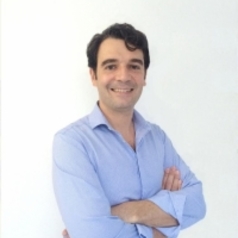
Antonio Pele
Associate professor, Law School at PUC-Rio University & Marie Curie Fellow at IRIS/EHESS Paris & MSCA Fellow at the Columbia Center for Contemporary Critical Thought (CCCCT) w/ the HuDig19 Project, Université Paris Nanterre – Université Paris Lumières
Associate Professor at the Law School of the Pontifical Catholic University of Rio de Janeiro, Brazil.
Marie Curie Fellow at EHESS/IRIS (2021-23
Visiting Professor at the University Paris Nanterre / CREDOF (Centre de Recherches et d'Etudes sur les Droits Fondamentaux)
Antonio is trained as a political scientist (Sciences-Po) and has received a Ph.D in Law (Carlos III University of Madrid)
His scholarship explores the politics of Human Dignity, the History of Human Rights, and Ethics of New Technologies.
Less ![]()
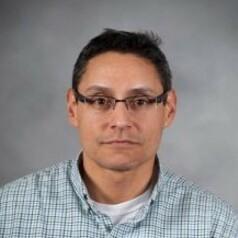
Antonio Arenas Amado
Assistant Professor of Civil, Construction and Environmental Engineering, Iowa State University
Dr. Antonio Arenas serves as an assistant professor at Iowa State University (ISU) in the Department of Civil, Construction, and Environmental Engineering. He has participated in a variety of research projects with an emphasis on the application and development of computational models and data analyses to understand and simulate surface-subsurface hydrologic interactions, the long-term effects of land-use changes on watershed hydrology and water quality, fish migratory behavior, spillway hydrodynamics, and total dissolved gas and temperature dynamics at hydropower reservoirs and tailraces. His current research focuses on developing and using fully coupled surface-subsurface watershed models to evaluate flood mitigation strategies and study the fate and transport of nutrients. Before joining ISU, Dr. Arenas worked as an associate research engineer at IIHR Hydroscience & Engineering at the University of Iowa (UI). He has a Ph.D. from UI, received a master’s degree from Universität Stuttgart (University of Stuttgart), and holds a bachelor’s degree from La Escuela Colombiana de Ingenieria.
Less ![]()
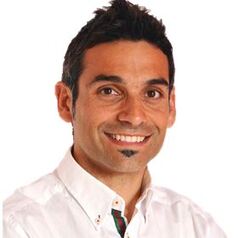
Antonio Cartón Llorente
Profesor e investigador en Fisioterapia y Ciencias del Deporte, Universidad San Jorge
Profesor Permanente Laboral en Fisioterapia y Ciencias del Deporte
1 Sexenio de investigación reconocido por la ANECA.
25 artículos en revistas indexadas JCR.
Exjugador profesional de balonmano y 4º clasificado en los Juegos Olímpicos de Tokio 2020 como preparador físico de la selección egipcia de balonmano.
Less ![]()

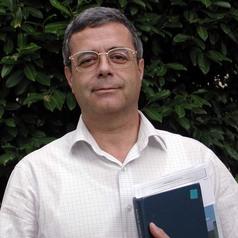
Antonio Ruiz de Elvira Serra
Catedrático de Física Aplicada, Universidad de Alcalá
Catedrático de Universidad
Director de 15 Proyectos Nacionales e Internacionales
Director del Departamento de Clima Marítimo de Puertos del Estado (España)
Mas de 400 posts sobre Clima, Cambio Climático y Ciencia
50 videos en El Mundo y Fundacion La Caixa sobre "El Por Qué de las Cosas"
Less ![]()
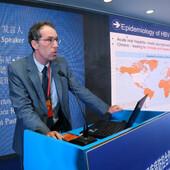
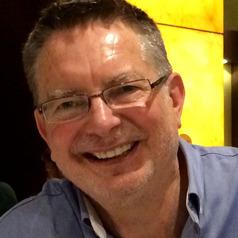
Antony Young
Professor of Experimental Photobiology, King's College London
Antony Young’s interest in photobiology was initiated by his MSc in Radiation Biology at the University of London. He studied for his PhD, on psoralen skin photosensitization, under the supervision of the late Professor Ian Magnus who was a pioneer in clinical and experimental photobiology. Professor Young has been secretary of the American Society for Photobiology (ASP) and is a regular faculty member at the American Academy of Dermatology (AAD). He is chairman of the British Photodermatology Group (BPG). He has also served on three working groups of the International Agency for Research on Cancer (IARC) and was the rapporteur for the European Commission (EC) Scientific Committee on Consumer Products (SCCP) that assessed tanning devices. He is photobiology section editor for the Journal of Dermatological Sciences.
Professor Young’s research interests include the effects of UVR on immune function, DNA photodamage and its repair, risk factors for skin cancer, UVR-induced oxidative damage and the role of antioxidants, photosensitization, endogenous and exogenous photoprotection and how the skin adapts to repeated low dose UVR exposure. Typically, experiments are done with human cells in vitro and studies on normal human volunteers. Professor Young has a long-standing interest in action spectroscopy (wavelength dependence of photobiology effects) and the public health implications of his work.
Less ![]()

Antti Mikkonen
Principal Health Risk Advisor – Chemicals, EPA Victoria, and PhD Candidate, School of Pharmacy and Medical Sciences, University of South Australia
Please add a brief bio
Less ![]()
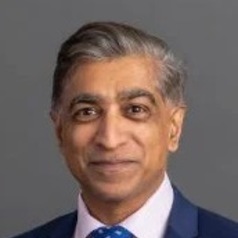
Anupam Chander
Professor of Law and Technology, Georgetown University
Professor Chander is Scott K. Ginsburg Professor of Law and Technology at Georgetown University. He is an expert on the global regulation of new technologies. A graduate of Harvard College and Yale Law School, he clerked for Chief Judge Jon O. Newman of the Second Circuit Court of Appeals and Judge William A. Norris of the Ninth Circuit Court of Appeals. He practiced law in New York and Hong Kong with Cleary, Gottlieb, Steen & Hamilton. He has been a visiting law professor at Yale, the University of Chicago, Stanford, Cornell, and Tsinghua. He previously served as the Director of the California International Law Center and Martin Luther King, Jr. Professor of Law at UC Davis. A member of the American Law Institute, he has also served on the Executive Council of the American Society of International Law, where he co-founded the International Law and Technology Interest Group. The author of The Electronic Silk Road (Yale University Press), he serves as a judge of the Stanford Junior International Faculty Forum. A recipient of Google Research Awards and an Andrew Mellon grant on the topic of surveillance, he has served on ICTSD/World Economic Forum expert groups on the digital economy. He serves as an Adjunct Senior Research Scholar at Columbia University’s School of International and Public Policy, a faculty advisor to Georgetown’s Institute for Technology Law and Policy, and as a faculty affiliate of Yale’s Information Society Project.
Less ![]()
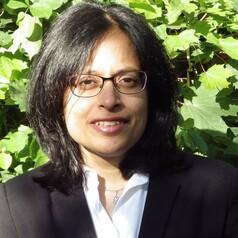
Anupama Sen
Head of Policy Engagement, Smith School of Enterprise and the Environment, University of Oxford and Fellow in Environmental Change, Reuben College, University of Oxford, University of Oxford
Dr Anupama Sen is an energy economist who has published extensively on electricity sector restructuring and reform in the context of the energy transition in non-OECD Asia, the transition to renewables in resource-rich economies in the Middle East and North Africa, energy pricing reforms, and the impact of the energy transition on international energy markets. She has a strong interest in the socio-economic implications of the energy transition, its implications for energy consumers, producers and governments, and in the circular economy in relation to energy.
Anupama holds a BA(Hons) in Economics from the University of Mumbai, MSc from the London School of Economics and PhD from the University of Cambridge. Anupama is a Fellow of the Cambridge Commonwealth Society, and has previously been a Junior Research Fellow and a Visiting Fellow at Wolfson College, Cambridge.
Less ![]()
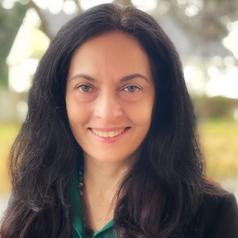
Anuradha Rao
Assistant Professor of Pediatrics, Emory University
I am an Assistant Professor of Pediatrics and am currently part of the team at ACME POCT (Atlanta Center for Microsystems Engineered Point-of-Care Technologies), the Test Verification Center for RADx (Rapid Acceleration of Diagnostics) Tech that is involved in validating tests that are used to detect and diagnose SARS-CoV-2 infections. I co-lead the Analytical Testing Lab of RADx at ACME POCT. Since December of 2020, we along with the Variant Task Force (comprising leaders in the diagnostics industry, NIH, FDA, and academia) have been involved in “testing the tests”. We ascertain that diagnostic tests are capable of accurately detecting all rapidly arising SARS-CoV-2 variants and to establish a biobank at Emory University that includes all the known variants of concern (VOC) that are circulating in the US. A major portion of this endeavor involves using clinical samples of specific variants to verify that diagnostic tests detect all the circulating variants as effectively as wild type SARS-CoV-2. In the past year, we are analyzing multiplex tests. These are home tests being developed for simultaneous detection of Influenza A, Influenza B and SARS-CoV-2 using a single sample. In addition to working to facilitate EUA for over-the-counter multiplex tests, our team also working on analytical studies for other point of care device for detection of viruses involved in common curable liver disease.
Less ![]()
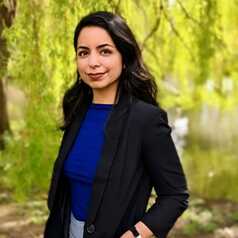
Anuradha Sajjanhar
Lecturer in Politics and Policy, University of East Anglia
I work at the intersection of comparative politics, communication, sociology, and public policy. I ask questions about ideology and discourse, processes of policy making, and right-wing mobilisation in the US, UK and India.
I am an Assistant Professor/Lecturer in Politics and Public Policy at the University of East Anglia, UK. Prior to this position, I was a Postdoctoral Fellow in Policy and Governance at the Crawford School of Public Policy, Australian National University, and a New Generation Network Scholar at the Australia India Institute. Parallel to my independent research, I led a research project in 2021 funded by the Immigrant Learning Center and the Institute for Immigrant Research examining the policy neglect experienced by immigrant essential workers in the U.S. during the COVID-19 pandemic.
Less ![]()
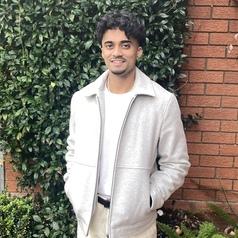
Anurag Pandit
PhD Candidate in Exercise Physiology, UNSW Sydney
I am an Accredited Exercise Physiologist based in Australia, and have just started my PhD investigating the menopausal transition and resistance training. My honours thesis was looking at the effect of creatine monohydrate on acute lean body mass changes measured by a DEXA scanner, and was contributing to research in the effect of your gut microbiome profile on adaptations to resistance training. During this time I published a paper (DOI: 10.1007/s40279-023-01878-1) looking at the sex bias in data informing resistance training guidelines.
Less ![]()
- Market Data




















